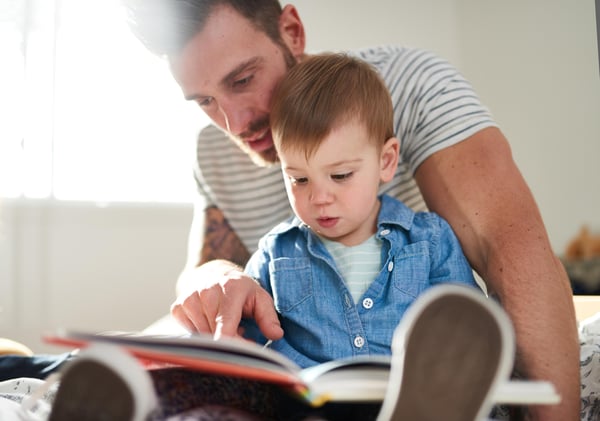Virtual Learning Didn’t Slow Preschoolers’ Reading Skills

TUESDAY, April 19, 2022 (HealthDay News) -- Preschoolers can learn reading skills in a virtual classroom, University of Washington researchers say.
"Children are ready to learn to read at the age of 5. But the pandemic robbed children of the opportunity for in-person reading instruction," said Patricia Kuhl, co-director of the Institute for Learning & Brain Sciences (I-LABS), in Seattle. "What we've shown here is that an online reading camp designed to promote learning socially works phenomenally well."
In a new study, Kuhl and her colleagues reported on a two-week virtual reading camp provided to 83 5-year-olds in the fall of 2020.
Before the camp, parents received a kit of materials — including headphones, worksheets and books — for use in the lessons. They also received some fun items, including colored plastic eggs kids used to "vote" for the correct answer during online sessions, rather than raising a hand.
Kids were divided into six-member virtual classrooms, each with two instructors. Sessions lasted three hours a day, with several breaks. The classrooms were often broken into smaller, three-student groups, each with a teacher.
Kids in the virtual reading camp showed greater gains in their knowledge of letters, sounds and words than children in a control group who didn't receive online instruction, according to findings recently published online in the journal Frontiers in Human Neuroscience.
"This shows that we can actually teach kids online if we're using the correct methodology, keeping them engaged, and they're interacting socially with their peers and teachers," said study first author Yael Weiss-Zruya, a research scientist at I-LABS. "Combining all of this made it successful."
Study leader Kuhl said she had her doubts about whether 5-year-olds could learn to read online without a live tutor, but those quickly evaporated.
"When I saw these 5-year-olds on Zoom laughing and encouraging each other to listen and hold up the right color egg, I was amazed," she said in a university news release. "Their social connections to each other were obvious, and their learning was incredible. They called each other by name and seemed very eager to see each other on the screen."
The researchers plan to hold more online reading camps. They also plan to do brain scans on participants before and after the camps to assess how learning to read affects brain development.
More information
The American Academy of Pediatrics explains how to help children learn to read.
SOURCE: University of Washington, news release, April 11, 2022
Related Posts
Dormir menos empeora las calificaciones de los universitarios, encuentra un estudio
MARTES, 14 de febrero de 2023 (HealthDay News) -- Estudiar hasta altas horas de...
La mayoría de las razas de perros son muy endogámicas y poco sanas
MARTES, 7 de diciembre de 2021 (HealthDay News) -- Los rasgos particulares de...
Pathophysiology of Nocturnal Enuresis Explored in Adult Women
MONDAY, Aug. 29, 2022 (HealthDay News) -- In adult women, nocturnal enuresis...
El dinero y la buena información no pueden superar a la resistencia a la vacuna contra la COVID: estudio
VIERNES, 30 de septiembre de 2022 (HealthDay News) -- Las autoridades de salud...
